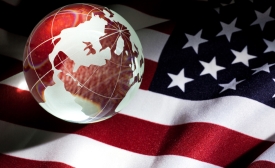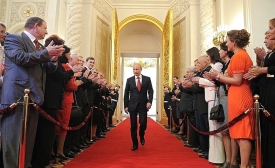disinformation
Back in November 2014, Michael Weiss and Peter Pomerantsev published an insightful report called “The Menace of Unreality: How the Kremlin Weaponizes Information, Culture and Money.” The main argument was that ‘truth’ no longer matters and the key objective is to deliberately distort the truth and sow confusion. The report earned immediate attention in Brussels—including in NATO circles.

How the "post-truth" trend of misinformation is affecting NATO, and how the organization can fight back.

This new report shares public diplomacy lessons learned over the past eight years and recommendations for the incoming administration.

Russia's public diplomacy strategy of disinformation displays not soft power but rather "wicked power," writes Erik Nisbet.







